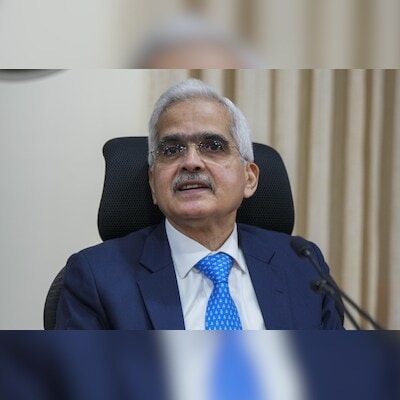[ad_1]
)
Reserve Bank of India (RBI) governor Shaktikanta Das said the rupee has remained very stable against the US dollar. (Photo: PTI)
Addressing the central bank’s ongoing efforts to manage exchange rate fluctuations, Reserve Bank of India (RBI) governor Shaktikanta Das said that the rupee has emerged as “one of the least volatile currencies” worldwide, particularly since the start of 2023. Speaking to CNBC International, he said, “The rupee has remained very stable against the US dollar and the volatility index.”
When questioned about the RBI’s reluctance to permit greater volatility in the rupee, the governor responded, “If you allow volatility, whom does it benefit? It does not benefit the economy. So why would we allow volatility?” He elaborated that while fluctuations in exchange rates are a natural occurrence, excessive volatility can have detrimental effects.
“Our stated policy is to prevent excessive volatility of the rupee,” he affirmed, adding that a stable rupee fosters confidence among market participants, investors, and the wider economy.
Recent interventions and capital account convertibility
In recent months, the RBI has actively engaged in the foreign exchange market to manage fluctuations in the rupee, primarily employing public sector banks (PSUs) as intermediaries to sell US dollars. This intervention was particularly pronounced between June and September 2024, during which the RBI reportedly sold substantial amounts of US dollars to stabilise the rupee amid pressures arising from increasing US interest rates and capital outflows.
Such measures are crucial in preventing sudden depreciation that could disrupt trade and investment activities.
Turning to the issue of capital account convertibility (CAC), the governor said that India is not yet prepared to fully liberalise the capital account. “We are not ready for capital account convertibility. It is a process… we have not yet allowed Indian citizens to open foreign accounts,” he said, referencing the remaining steps towards complete capital liberalisation.
Capital account convertibility refers to the ability to freely convert local financial assets into foreign ones and vice versa without restrictions, allowing for unrestricted capital movement for foreign investments, asset purchases, and remittances. While such a move could attract foreign capital and enhance liquidity, the RBI governor cautioned about the potential risks associated with exposing the economy to volatile capital flows, particularly in an emerging market like India.
The primary concern lies in the fact that full CAC could render India susceptible to significant and abrupt inflows or outflows of foreign capital, thereby heightening the risk of financial instability.
Liberalising use of rupee
Nevertheless, the RBI has made noteworthy strides towards liberalising the use of the rupee in international trade. In 2023, India established local currency trade agreements with countries such as the UAE, permitting bilateral trade to be conducted in either the rupee or dirham, thereby diminishing reliance on the US dollar.
Additionally, the RBI has promoted the use of rupee vostro accounts to facilitate rupee-denominated international trade.
Despite these advancements, the Das reiterated that full capital account convertibility is a gradual process. “We have undertaken considerable liberalisation… but certain key steps, like allowing Indian citizens to open foreign bank accounts, are still pending,” he said.
The RBI’s approach seeks to strike a balance between liberalisation and ensuring financial stability, particularly in light of the uncertainties prevailing in the global economic landscape.
First Published: Sep 16 2024 | 5:49 PM IS
[ad_2]
Source link

